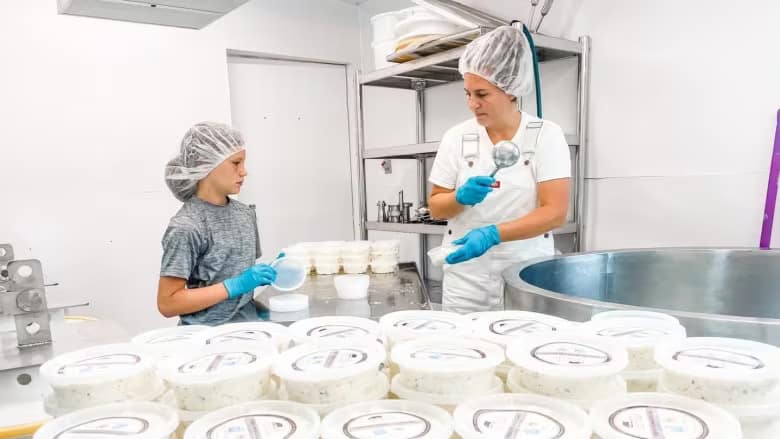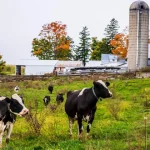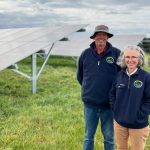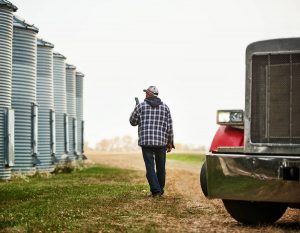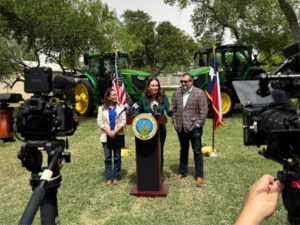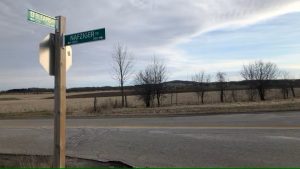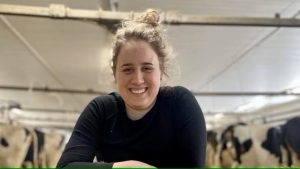
Climate change, supply chain issues and the cost of living and land have made it more difficult than ever to break into the world of farming, and for those who were born into it and contemplating taking over the family business, the outlook can be grim.
Despite these challenges, some young farmers are working to keep the industry afloat as their predecessors retire and the demand for locally grown produce remains high.
“It’s a labour of love,” said Steve Saccomano, the business development manager for RBC Agriculture and committee member for the British Columbia Outstanding Young Farmer.
On March 27 and 28, some of them will be recognized by Canada’s Outstanding Young Farmer’s Program, which aims to encourage and support farmers under 40.
CBC met with some of those working to keep food on the tables of British Columbians, as climate change and rising costs make farming more critically important and more difficult than ever.
Travis Hopcott, 38
The Hopcott family farm in Pitt Meadows, B.C., was purchased in 1932 for $9,000.
Since then, generations of farmers have helped bring dairy, beef and cranberries into Canadian homes and have diversified their operation to include a corn maze, a retail shop, weddings and a processing plant.
Travis Hopcott, 38, and his siblings are the newest generation taking on the running of the family farm. As their parents age, they’ve been shouldering more responsibilities, including running the cranberry and cattle operations.
“There is a lot of concern regarding food security,” Hopcott said. “With recent natural disasters, that has been a real cause for concern … all that experience that can be shared. So that’s why we view it as pretty important.”
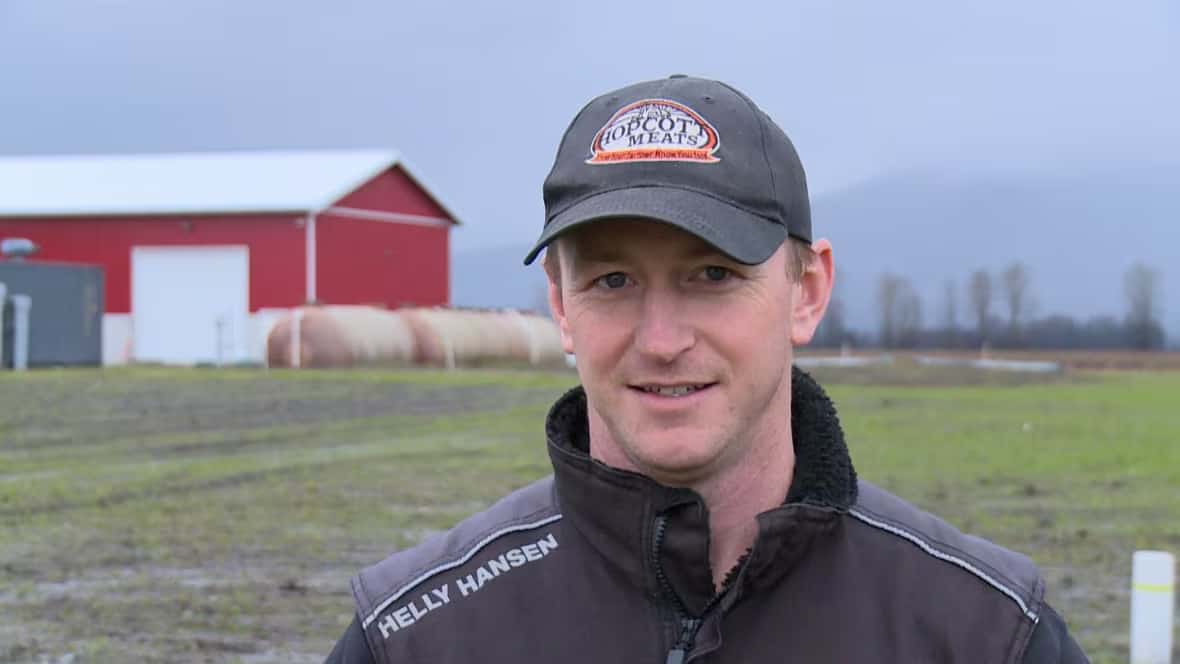
Julaine Treur, 36
Julaine Treur’s grandparents ran a dairy farm until they sold it when she was three years old. Her parents ran a beef farm, and her husband, Johannes Treur, grew up on a dairy farm.
Farming is in their blood, and they hope to pass it on to at least one of their five children.
The Treurs run Creekside Dairy in Agassiz, B.C., where they make cheese and other products.
“Dairy farming’s hard work,” Julaine said, pointing to increasing costs and the difficulty of starting a new farm.
Like Hopcott, she said food security is a driving force for her and her husband. When her community was cut off from the rest of B.C. during catastrophic flooding in November 2021, she learned just how fragile the food system really is.
“We were actually cut off from the B.C. Interior and from Vancouver, so milk that was produced on dairy farms here wasn’t able to actually get to the large plants in the city, and the grocery stores were empty — there was no milk on the shelves.”
But her farm kept people in the area supplied with fresh milk.
“That really illustrated for us how important it is to have vibrant small farms within every community.”
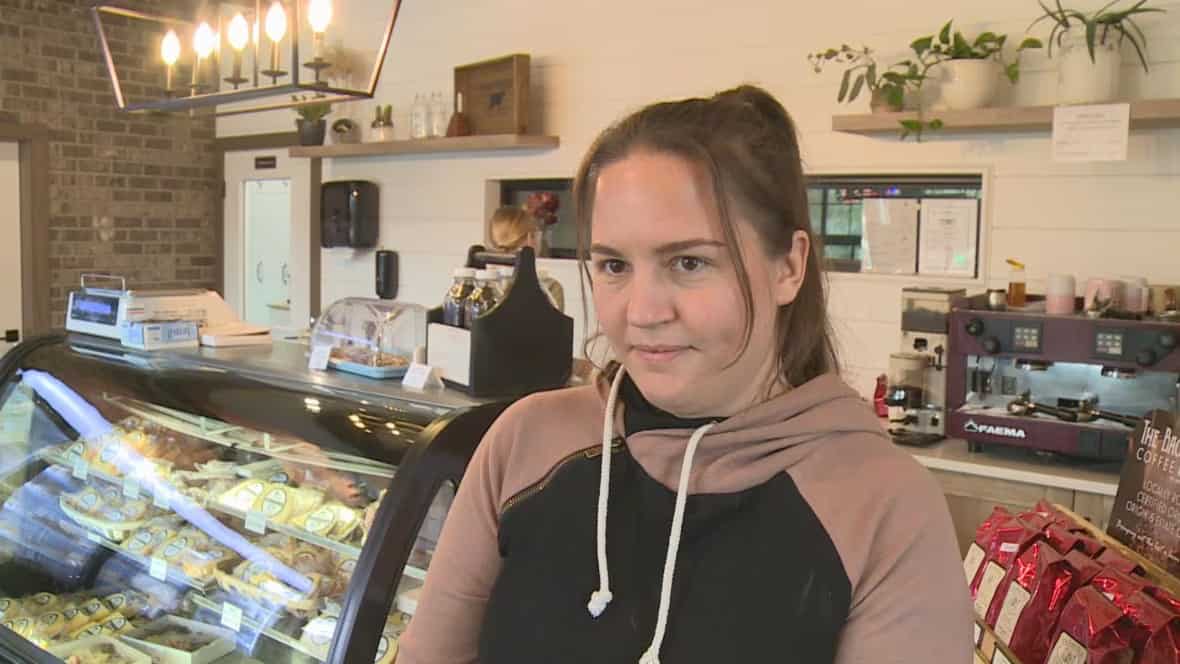
Cammy Lockwood, 37
Cammy Lockwood’s farming journey began 12 years ago with just a few backyard chickens.
She and her husband were looking for ways to reduce their environmental footprint and enjoyed learning about growing food.
Her husband and his father started a farm, which she later joined. Today, they have 6,000 laying hens on five acres in the Cowichan Valley on Vancouver Island.
She said starting a farm from scratch, without inherited land or knowledge, is challenging.
“If you’re looking at the housing in the Vancouver market, it’s expensive, but if you’re looking at agricultural land anywhere in British Columbia, it’s very, very expensive,” she said, describing it as a “capital intensive” industry.
She adds that agriculture is becoming more and more challenging as extreme weather, like flooding and heat domes, becomes more frequent.
“Even after you have land, there’s still a huge number of challenges. Having to produce on that land so that you can pay for it is a challenge in and of itself.”
With files from Janella Hamilton and BC Today
